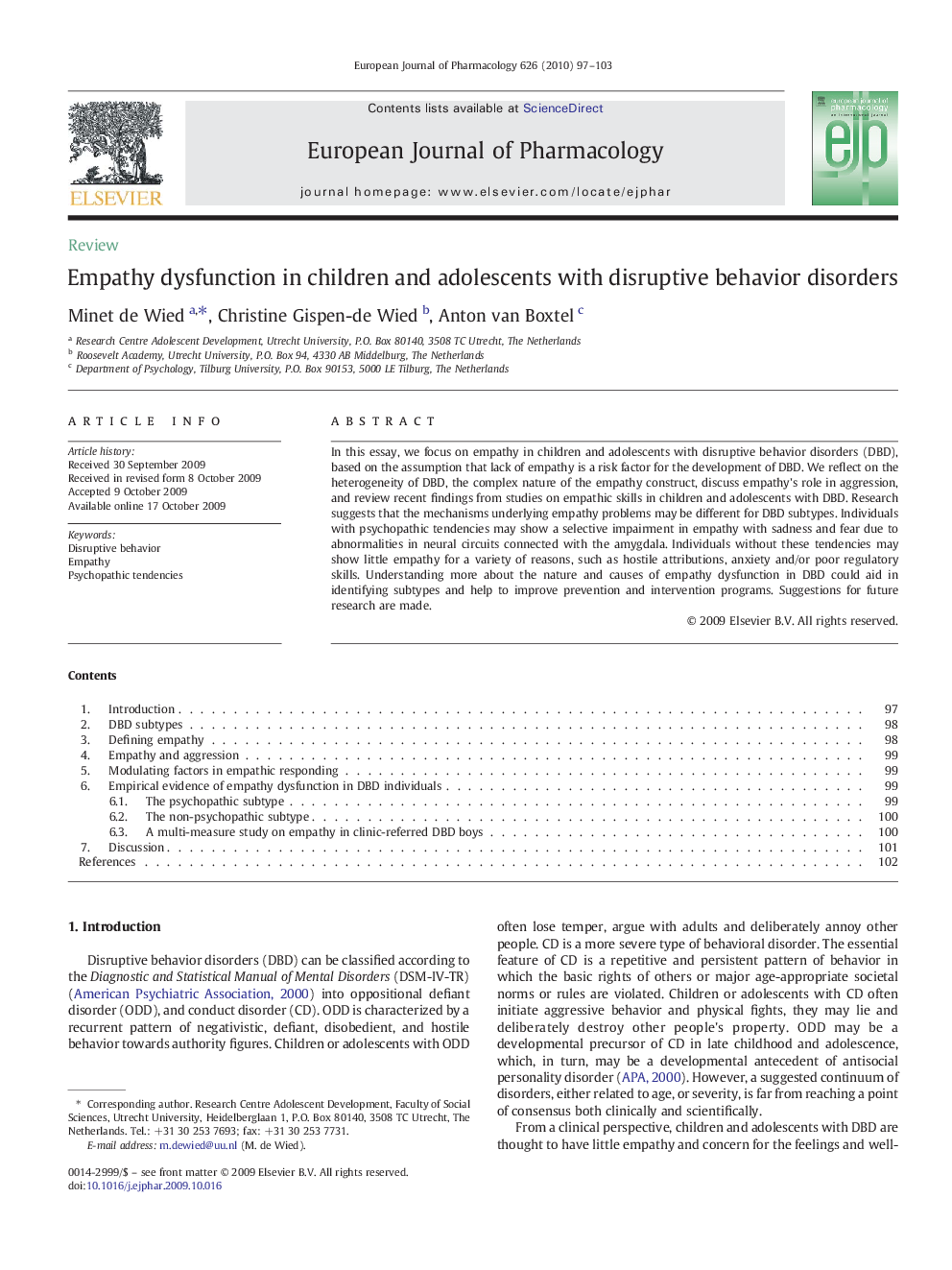| Article ID | Journal | Published Year | Pages | File Type |
|---|---|---|---|---|
| 5830608 | European Journal of Pharmacology | 2010 | 7 Pages |
Abstract
In this essay, we focus on empathy in children and adolescents with disruptive behavior disorders (DBD), based on the assumption that lack of empathy is a risk factor for the development of DBD. We reflect on the heterogeneity of DBD, the complex nature of the empathy construct, discuss empathy's role in aggression, and review recent findings from studies on empathic skills in children and adolescents with DBD. Research suggests that the mechanisms underlying empathy problems may be different for DBD subtypes. Individuals with psychopathic tendencies may show a selective impairment in empathy with sadness and fear due to abnormalities in neural circuits connected with the amygdala. Individuals without these tendencies may show little empathy for a variety of reasons, such as hostile attributions, anxiety and/or poor regulatory skills. Understanding more about the nature and causes of empathy dysfunction in DBD could aid in identifying subtypes and help to improve prevention and intervention programs. Suggestions for future research are made.
Keywords
Related Topics
Life Sciences
Neuroscience
Cellular and Molecular Neuroscience
Authors
Minet de Wied, Christine Gispen-de Wied, Anton van Boxtel,
